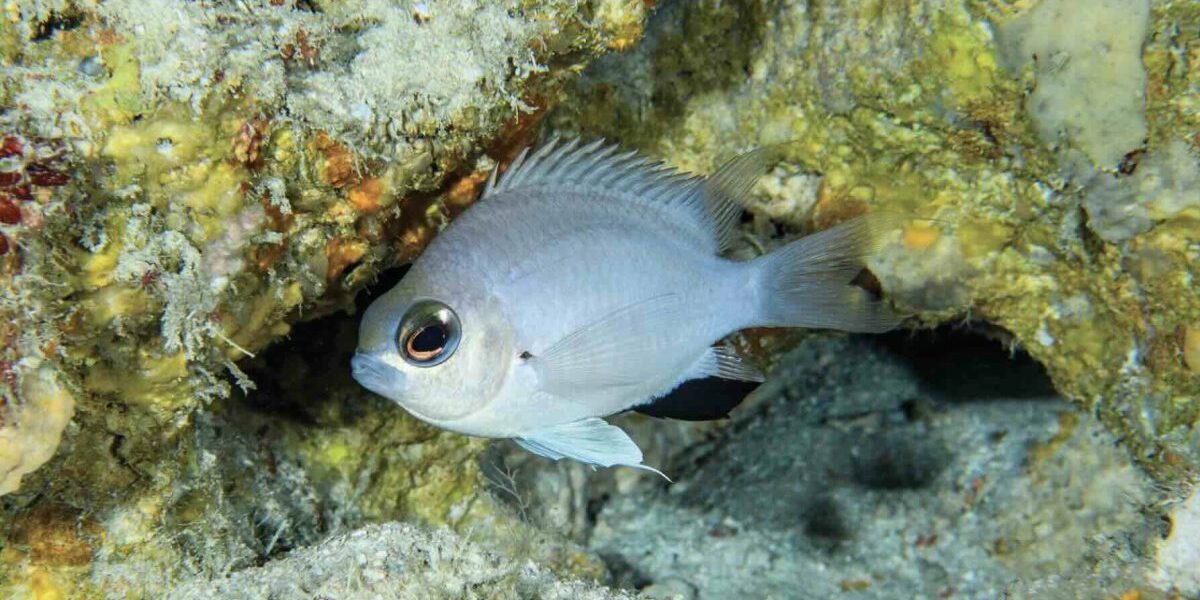A new species of fish has been found in the pristine Maldives’ waters, marking a significant advancement in marine science. The species, Chromis Abadhah, is named after the Maldivian Dhivehi word Abadhah, which means forever and represents the continuous dedication to planetary protection. The Rolex Perpetual Planet Initiative, which provided funding for the study, is also acknowledged by the name.
The fish was initially observed on the Kaafu Atoll, close to Maafilaafushi. The species is found throughout Maldives waters, from Lhaviyani Atoll to Dhaalu Atoll, according to later research. The fact that researchers recorded the fish in eight different places suggests that it might be spread throughout the nation.
Chromis Abadhah inhabits the mesophotic zone, when sunlight starts to diminish, at depths of 95 to 110 meters. It differs from other species in its family, which usually inhabit shallower waters of about 30 meters, because of its habitat.
The new species is a member of the “Dan’ba” family, which is a group of damselfish that are frequently found in the oceans of the Maldives. Chromis Abadhah, however, differs from its relatives in a number of ways:
- It doesn’t have the distinctive black cross line close to the neck like other Chromis species have.
- In contrast to comparable species, which typically have 13 bones in their upper shell, this one has 14.
Abadhah appears to be endemic to the Maldives, which makes it a unique addition to the region’s biodiversity. Other Chromis species, like Chromis axillaris, Chromis pelora, and Chromis woodsi, are found around the world.
International scientists and Maldivian professionals worked together on the project. Researchers used a specialized net to catch four specimens in order to gain a better understanding of the species. The significance of deep-sea exploration in locating marine treasures is underscored by their findings, which were published in a scholarly publication.
The discovery of Chromis Abadhah highlights the tremendous marine biodiversity of the Maldives and the vital role that research plays in preserving it. The significance of preserving deep-sea ecosystems, which frequently support rare and endemic species, is further highlighted by this discovery.







